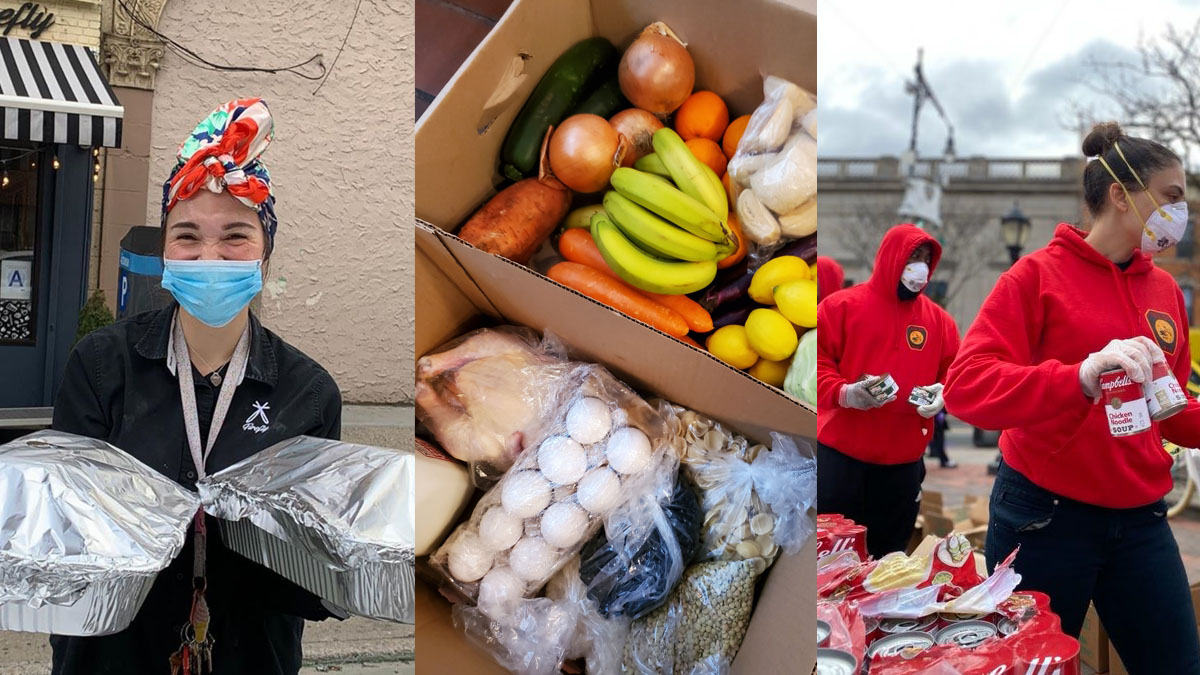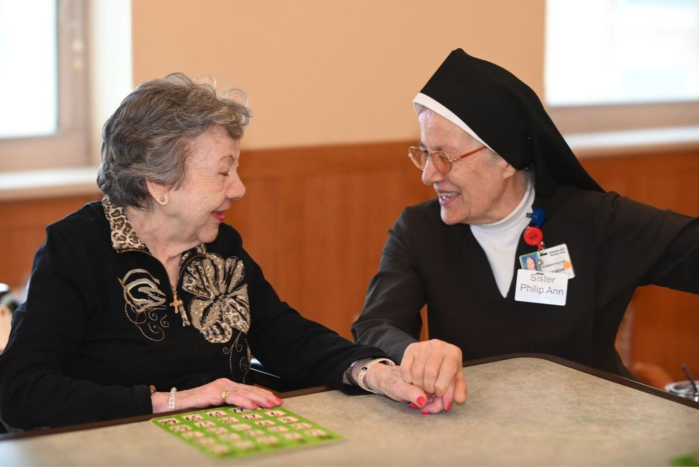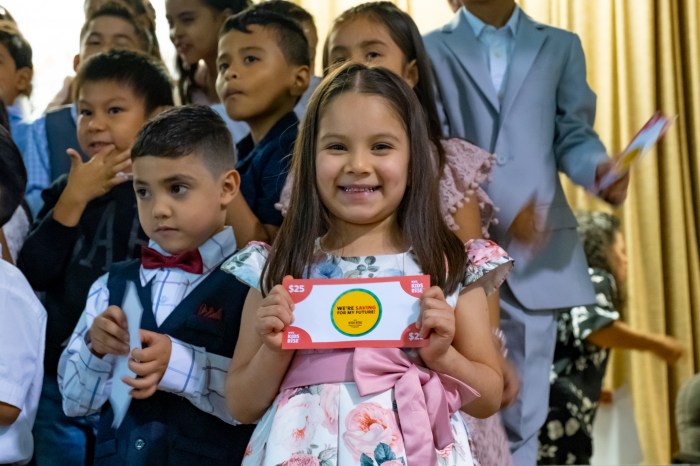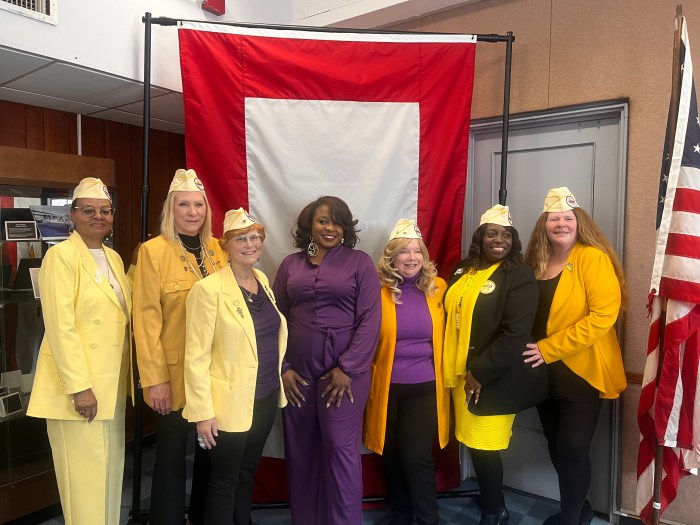Before the COVID-19 pandemic took a hold of New York City, millions of New Yorkers lived with food insecurity — and now that the health crisis has left millions more without work, the need continues to grow.
But grassroots organizations across Queens are taking on the challenge to care for their neighbors.
Learn about some of the Queens groups on the nutrition front lines who are committed to serving the most vulnerable communities in the borough.
The Connected Chef
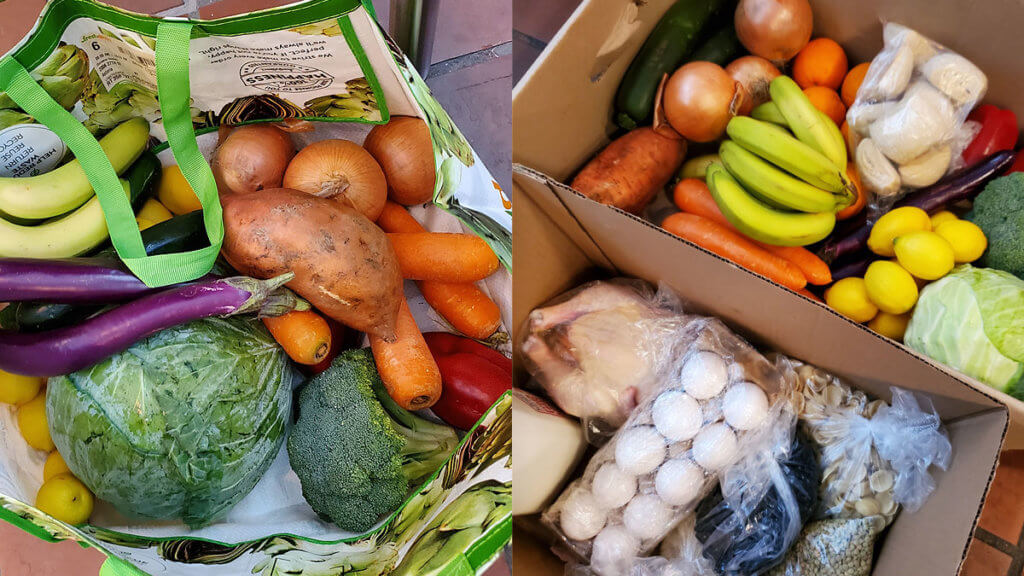
Kim Calichio, founder of The Connected Chef, is on a mission to show people the lasting benefits of learning basic cooking skills that’ll make them feel comfortable in the kitchen and, most importantly, encourage them to create memories with their loved ones.
The Connected Chef has a number of programs, such as adult, kid and family cooking classes, as well as STEAM classes and summer camp.
But, once COVID-19 began to spread, Calichio quickly shifted gears.
The Astoria-based professional chef understood the pandemic would impact restaurant and food industry workers, many of whom don’t qualify for unemployment benefits or government aid for a number of reasons. In an effort to help some of the most vulnerable communities in western Queens, Calichio joined forces with Hellgate Farm to start Lifeline Grocery Delivery.
They created a GoFundMe to fund the initiative, and have raised more than $7,000 in just two weeks.
Last week, they delivered their first slate of food packages to 18 families in Queens. The packages included fresh produce, such as fruits, vegetables, grains and meat, all sourced from Hellgate Farm’s urban, rooftop gardens as well as other local food purveyors.
“It’s one thing to know it’s happening, and another thing to call up these families and have them talk to you. One woman is cooking once a day because she needs to make sure she has enough to feed her family. That’s a big emotional toll,” Calichio said. “We want to expand, spread the word and gain continued funding to be able to do so. It’s beautiful to see how our community has come together, but they’re also strained. We need to make sure people who have the money actually give it.”
The Connected Chef is also offering virtual cooking classes starting at $11. Calichio, a mother of two, notes it can be a great activity for families (or for parents who need to keep their kids busy after remote learning).
For more information and to see all their programing, visit www.theconnectedchef.com.
If you’re a family in western Queens who’s been economically affected by COVID-19, fill out their form, “The Connected Chef’s Lifeline Grocery Delivery / La Entrega de Comestibles Lifeline.”
Catering for the Homeless
Crystal Wolfe founded Catering for the Homeless well before COVID-19 — and as NYC underwent the health crisis, she created the COVID-19 Crisis Relief Drive to gather and distribute food and clothing to homeless and others living with food insecurity in Queens.
In less than a month, CFTH attained approximately 5,000 toiletry items and 2,500 non-perishable food items distributed in food pantries throughout the borough; provided 3,000 meals and bags of groceries to families, seniors, disabled and home-bound residents; and distributed 1,000 donated items of food, socks and toiletries including hand sanitizers to the homeless on the streets, parks and subways.
Wolfe created a network of churches, food pantries and organizations to work with, but runs the whole operation by herself voluntarily.
The Maspeth resident is also looking to work with the Department of Education in order to re-distribute their food excess to the homeless and food insecure.
“There is food going to waste in every town in America that no one needs to go hungry,” Wolfe said. “Getting this food excess to those who need it can solve, or greatly reduce, this hunger crisis.”
For more information on Wolfe’s services or to donate, visit www.cateringforthehomeless.com.
Queens Together
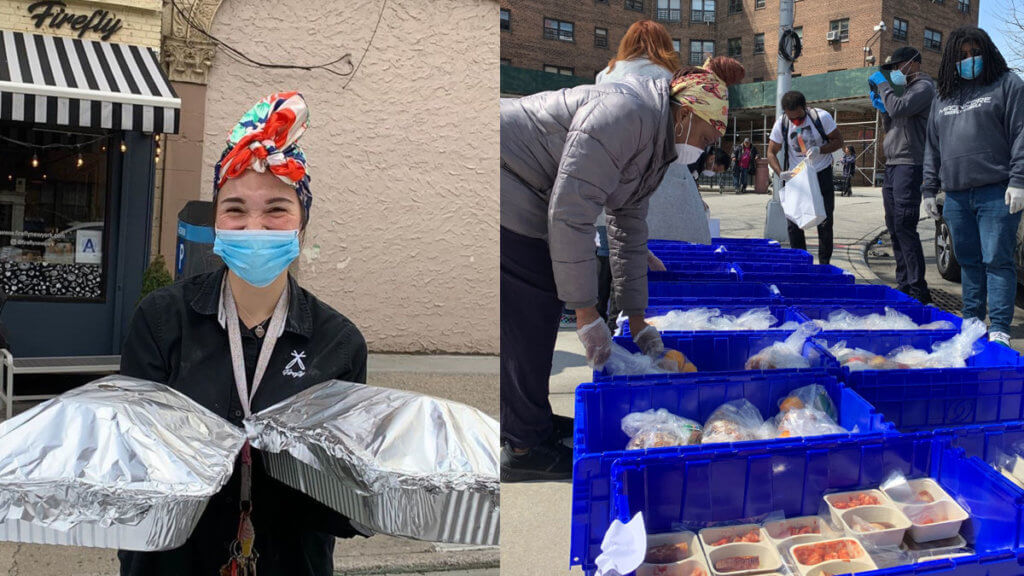
Queens Together was created “on the fly” by former chef Jonathan Forgash and Sunnyside Shines Business Improvement District Director Jamie-Faye Bean to help feed frontline healthcare workers as well as other emergency responders by partnering with local, independent restaurants.
The organization, formerly known as Astoria Together, is working with the Queens borough president’s office, the Queens Economic Development Corporation and many other local groups to deliver free daily meals to four hospitals, including Mount Sinai Queens and Elmhurst Hospital.
“Even before COVID-19, we all thought of them as heroes,” Forgash said. “Yes, they get paid and aren’t starving, but they are working brutal hours and giving their all. They deserve a nice, comforting meal.”
Forgash and Bean helped start Queens Feeds Hospitals, a branch of the national Frontline Foods, but realized now was the perfect time to launch a more local effort to help restaurants thrive in the community.
“We quickly saw food insecurity was huge issue in our communities, and we were in a good position to expand this into providing a lifeline to our local businesses,” Bean said.
Queens Together has delivered more than 3,000 meals in Queens, which include 1,700 meals to hospitals and 100 meals for essential workers (firemen and educators at Regional Enrichment Centers). They’ve also distributed 100 food boxes at Astoria Houses, and will be expanding on that effort in coming weeks.
The next step is to expand their operation to serve food pantries and other vulnerable communities, including seniors and people out of work.
Queens Together also helped kickstart a western Queens local business source map, Who’s Open??, which tracks businesses in the area and their operation details.
For more information or to donate, visit www.queenstogether.org.
La Jornada
La Jornada has served hundreds of thousands of immigrant families in Flushing for more than four years — but Pedro Rodriguez, the director of the volunteer-led food pantry, has never witnessed the current need.
“The rising unemployment rate, closing stores and supermarkets has created a tsunami of people,” Rodriguez said in Spanish. “Before, women would make up 70 to 80 percent of the food pickup line, but we’re seeing more and more men making the line, about 40 to 50 percent. You can feel their frustration and hurt. They’ve worked all their lives and now …”
La Jornada found a permanent home at the Bland Houses, located at 133-36 Roosevelt Ave. (building four), after St. George’s Episcopal Church in Flushing ended their partnership to run their own pantry in 2019. Their first day in their new home was Sunday, March 15 — the day before New York state directed all nonessential workers to work from home.
Since then, they’ve served more than 5,000 people. Instead of working only once a week as they originally set out to do, they’re working six days a week, with a variation of services each day.
On Mondays, Tuesdays and Wednesdays, they distribute lunch as well as deliver groceries to seniors and disabled individuals; Thursdays are designated for Bland Housing residents; Fridays are senior days (60 and older); and on Saturdays, they distribute food until they run out to anyone and everyone in Queens.
For Rodriguez, it’s both a miracle and a blessing that his volunteers haven’t contracted COVID-19. He credits Assemblywoman Catalina Cruz, Senator Jessica Ramos and Congresswoman Grace Meng for providing them with face masks and other supplies to protect themselves and the people they serve.
They also maintain a strict six feet between everyone in line and inform everyone to wear masks.
Although Mayor Bill de Blasio and Speaker Corey Johnson announced they’re allocating $25 million in emergency funding for food providers across NYC on Friday, April 10, Rodriguez thinks that isn’t nearly enough.
“That won’t even reach the weekend,” Rodriguez said. “Have they not seen the unemployment numbers? Do they understand people are going hungry in this city?”
Rodriguez always felt serving food came from the heart, and that feeling remains, especially now. “God prepared us for what we’re facing,” he said.
For the most up-to-date information, follow La Jornada on Facebook at www.facebook.com/LaJornadany.
Hungry Monk
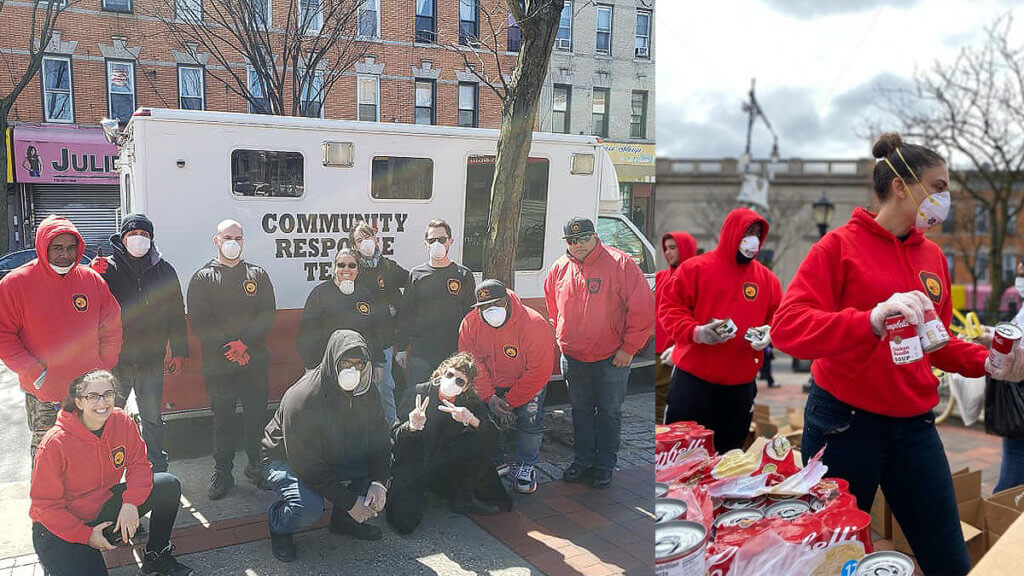
Hungry Monk, an NYC-based homeless outreach and community response vehicle, is on its third year of serving those living with food insecurity in Queens. The entirely volunteer-led organization has been out in Queens on a daily basis for a little over a month, and have distributed approximately 250,000 pounds of food.
“We’ve been able to work with a phenomenal group of people who are committed to doing this,” said Hungry Monk’s Executive Director Mike Lopez.
Longtime and new volunteers have helped expand their efforts by working more than 12-hour days to rescue, sort and distribute food.
They also opened a food pantry, located at 68-59 60th Ln. in Ridgewood, which is open on Tuesdays, Thursdays and Saturdays from 10 a.m. to 2 p.m. They operate their food outreach on Cypress and Myrtle avenues in Ridgewood on Saturdays at 11:30 a.m.
Those who have been hospitalized and sent home in the greater community of Ridgewood, Glendale, Maspeth, Middle Village and Bushwick can also call their joint Mutual Aid initiative with Woodbine for emergency food pantry deliveries.
Hungry Monk serves an average of 300 meals on a daily basis. They usually served about 200 families, but are now up to 1,600 families.
Hungry Monk recently partnered with Congresswoman Alexandria Ocasio-Cortez to launch a full-scale fundraising effort, which resulted in them working together to provide pantry bags to four housing communities in District 14, including LeFrak City in Corona.
Lopez emphasizes the importance of obtaining funds from elected officials so they can continue to directly impact the lives of Queens residents.
“The need will be steady and will be staying as it is at least for the next six to eight weeks,” Father Lopez said. “It’s fiscally impossible to maintain our operation, but we’re exhausting all the resources we can.”
For more information or to donate, visit www.hungrymonkrescuetruck.org.
Woodbine
Woodbine, Ridgewood’s volunteer-run experimental hub, has a variety of COVID-19 resources and services for the Ridgewood community, including a food pantry as well as the Mutual Aid initiative they run in collaboration with Hungry Monk.
Woodbine runs their food distribution outside of their space, located at 1882 Woodbine St. in Ridgewood, on Wednesdays and Fridays at 10 a.m. They focus on providing fresh produce while Hungry Monk provides dry and canned food.
Their selection of food, which they source locally, will change every day and week. For instance, their first pickup bags on Friday, March 27 each had potatoes, cauliflower, kale, basil, bread, two boxed salads, green sauce, banana bread with walnuts and a dark chocolate Kind bar.
Their Mutual Aid also highlights the local information and resources that the community may need, including the names and contact information of Ridgewood’s elected officials.
Woodbine is calling for Gov. Andrew Cuomo to cancel rent.
“We started talking to a lot of our neighbors and one of the big things we’ve heard is that many people aren’t working,” Matt Peterson, an organizer at Woodbine, told QNS in March. “Lots of New Yorkers live paycheck to paycheck and this has been going on for two to three weeks now. We saw there’s a lot of other relief like eviction and mortgage moratorium, but Cuomo left rent a bit vague.”
For more information or to donate, visit www.woodbine.nyc.

